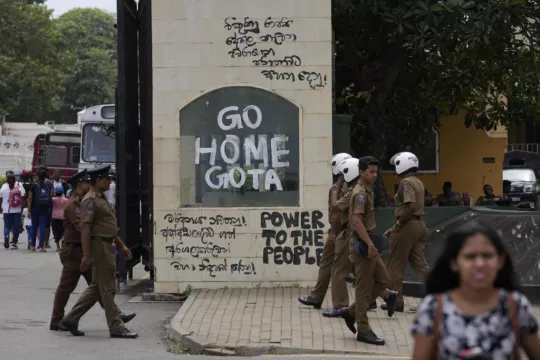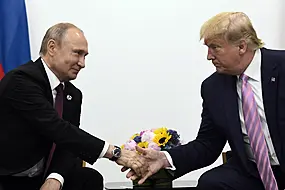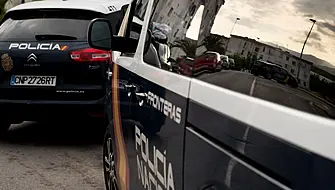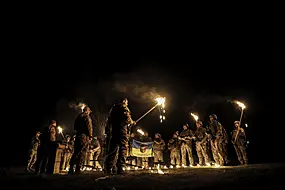The two men at the centre of the turmoil brought about by the Sri Lanka’s economic collapse have promised they will heed the call of tens of thousands of angry protesters and resign.
President Gotabaya Rajapaksa, the last of six members of the country’s most influential family who was still clinging to power, said he would leave office on Wednesday.
Mr Rajapaksa’s chosen prime minister Ranil Wickremesinghe, a seasoned opposition politician who was brought in to steer the country out of the abys, said he would depart as soon as opposition parties agree on a unity government.

It comes after the country’s crisis peaked over the weekend with massive crowds descending on the capital, Colombo, and breaking into Mr Rajapaksa’s official residence and occupying his seaside office.
Hours later, as leaders of political parties in parliament called for both leaders to step down, protesters also stormed Mr Wickremesinghe’s residence and set it on fire.
Saturday’s chaotic scenes were the culmination of months of protests.
Mr Rajapaksa, whose whereabouts are unknown, said he would leave office on Wednesday, according to the parliamentary speaker.
Pressure on both men has grown as the economic meltdown set off acute shortages of essential items, leaving people struggling to obtain food, fuel and other necessities.
Opposition party leaders have been in discussion to form an alternative all-party government, an urgent requirement for the bankrupt nation to continue discussions with the International Monetary Fund for a bailout programme.

Lawmaker Udaya Gammanpila said the main opposition United People’s Front and lawmakers who have defected from Mr Rajapaksa’s ruling coalition have had discussions and agreed to work together.
Main opposition leader Sajith Premadasa and Dullas Alahapperuma, who was a minister under Mr Rajapaksa, have been proposed for president and prime minister and they have been requested to decide on how to share the positions before a meeting with the Parliament speaker later on Monday.
“We can’t be in an anarchical condition. We have to somehow reach a consensus today,” Mr Gammanpila said.
Opposition parties are also concerned over military leaders making statements on public security in the absence of a civil administration.
Lawmakers have discussed Chief of Defence Staff Shavendra Silva making a public statement calling on the people’s cooperation to maintain law and order, said Kavinda Makalanda, spokesperson for Mr Premadasa.
“A civil administration is the need, not the military in a democratic country,” Mr Makalanda said.
If opposition parties fail to form a government by the time Mr Rajapaksa resigns, Mr Wickremesinghe as prime minister will become acting president under the constitution.
However, in line with the protesters’ demands, opposition parties are keen on not allowing him take over even as acting president.
They say Mr Wickremesinghe should promptly resign and allow Speaker Mahinda Yapa Abeywardena to take over as acting president — the next in line according to the constitution.
Mr Rajapaksa appointed Mr Wickremesinghe as prime minister in May in an effort to solve the shortages and start economic recovery. But delays in solving the shortages has turned public anger against him with protesters accusing him of protecting the president.







